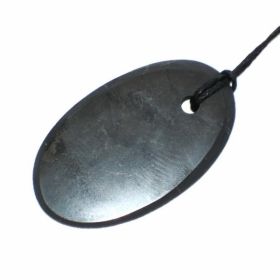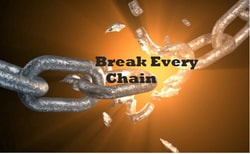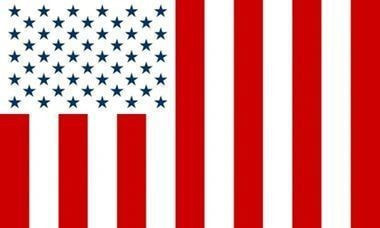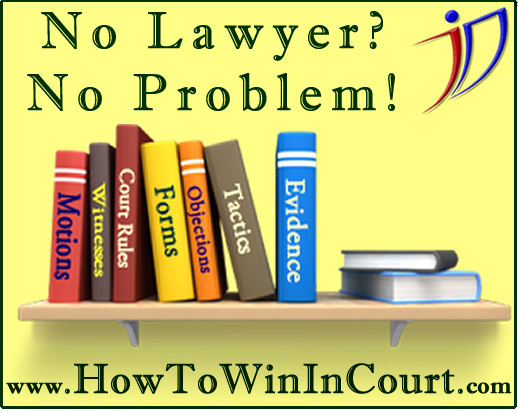 By Anna Von Reitz In order to get by and thrive in life, you have to have a reasonable concern for "the other fellow" --- your family, your workmates, and yes, public employees, shopkeepers, veterinarians.... the list goes on. You also have to deal with bankers. Most of the problems people are having with banks --- at least those that come over my desk --- are self-created and can be fixed just as quickly as they start. Let's review some basics. You are allowed by law to transact your business as you wish. You can, by law, use Federal Reserve Notes or United States Notes, either one. So, why not choose to use the lawful currency, United States Notes? This helps pay down the so-called "National Debt" and helps everyone in this country, including you. The use of United States Notes presents a paper problem for the bank, because at any given time, most banks don't stock a lot of United States Notes, and they are worried that you are going to walk up to their cashier and want to cash out your account in United States Notes. If they ask, assure them that that is not your intention. Not having enough United States Notes on hand could be a cause of embarrassment for the banks, or worse, cause people to think the bank is insolvent, etc., and cause a "bank run". In reality, that is an extremely unlikely scenario, and denominating the funds in your accounts as United States Notes isn't actually the worry of the individual banks, because the government backs those denominated funds internationally as SDRs. So, no actual worries for the banks, and you are, meanwhile, paying down the National Debt and making sure that your funds won't be subject to any bail-outs or bail-ins or other shenanigans. If you bank is edgy about your decision to denominate the funds in your accounts as United States Notes, just sit them down and explain what I just explained to you. Many small town bankers are not all that familiar with the currency laws and the use of United States Notes. Set them at ease. It's your decision. Next point..... There is no reason to be scared of using a Social Security Account Number when setting up a bank account. The banks use this information to insure against losses, but if they get caught doing anything inappropriate with your Social Security Account, they get fried and served for lunch. Social Security Numbers function as both CUSIPS and AUTOTRIS account numbers. The familiar version with dashes is the CUSIP account set aside for making charges. The much-less familiar AUTOTRIS version without dashes is the credit side of things. This is a direct demand account that FDR established "for" you without your knowledge or consent and dubbed a "special trust account" --- that you haven't known about or had access to. How convenient. This "special trust account" was created by Executive Order 2039 and technically applied only to Municipal Employees....but via non-disclosure and fraud, the perpetrators entrapped almost everyone and then used it as the excuse to steal your name, your assets, your rights, and in many instances, even your lives. That "trust account" is yours and it's time that you had the benefit of it. So understand and make sure the bank understands that when they ask for your Social Security Number that they are asking for access to your trust account and to your Signature for their use as a rubber stamp---let them know that you are aware of what they are doing and that you will hold them individually 100% commercially liable if they do anything at all inappropriate with this information. To clip their wings be sure to use a "byline" and "without prejudice" and a small copyright notice (a small "c" surrounded by a circle) when you sign the Signature Card. That identifies that particular signature as your own unique creation and places it under your private copyright. That means that not only will they be fried and served for dinner if they mess with your account, they will be deep-fat fried. With that caveat, go forth and conquer. The exact verbiage to safely endorse the back of a check and denominate the funds in "lawful money" --- is: By:_________________________ (c) All rights reserved. Redeemed in lawful money. 12 USC 411. Please note that I don't have a copyright symbol in this program so the (c) above should actually be a small "c" that is completely encircled. Use your Upper and Lower Case Signature to sign checks, like you were taught in school, and don't use any exotic punctuation or odd or inappropriate abbreviations like "ar" or "LS". After all --- "ar" might mean "all rejected" or anything else at all, and "LS" --- "Living Soul" certainly doesn't belong on a check. Also consider that if you were a bank and someone was placing a restriction on their signature using unknown abbreviations, you would have cause to be alarmed, too. Just think about what you are doing and in which arena you are operating and play it straight. Most banks are aware of their fiscal responsibility to their customers and are only asking that you be reasonable and explicit --that is, honest, about what you are doing and what you expect of them in return. So spell it out. Say, "All rights reserved." or "Without prejudice". That's perfectly okay for you to say or do and nobody should have any concern about that --- but "ar" or "wp" won't do. Admittedly, if you get numerous checks you could get writer's cramp doing endorsements, so get a self-inking rubber stamp at a copy shop, and all you have to do is add your signature. Finally, you should be aware that there advantages to running your affairs as a small independent business which are "corporate" but not "incorporated". This places your business squarely in the realm of international trade, which offers you protections when conducting business with commercial (incorporated) corporations and makes it clear that you are not subject to commercial presumptions. Ah, so. When a commercial corporation tries to attack you or seize your bank account they find it to be a much more difficult proposition. Most of them, including the IRS and other privateers prefer to go after lower hanging fruit. If you are dealing with a commercial bank (most are) they will want you to have a business license when setting up an account, which is to protect them, not you. But having met that hurdle for a time, and presuming that you are conducting your business exclusively with lawful money, you can let the license lapse and operate as a truly private business, even though you are using the services of a commercial bank. The commercial corporations can mess with their own script and control their own affairs and employees within reasonable limits. The transition from a licensed small business with limited commercial obligations to a private business functioning entirely in the realm of international trade should be viewed as similar to the transition when you move from one state or country to another. Most banks are dependent on small businesses which by far employ the greatest number of people in any given community and which generate the lion's share of GDP. The last thing they want to do is drive your business away. That said, the banks need to get their act together, too, and show you the care and respect that you deserve. If they treat you well and keep your accounts secure, they've done their job. If not, the pendulum swings and other alternatives must and will be sought. I have a very handy reference on my desk that shows how to convert a "Federal" Credit Union into a State Credit Union --- and I am not talking about a "State of State" Credit Union, I am talking about an actual State Credit Union. Credit Unions naturally belong in the realm of international trade and are perfect for the needs of average people and small businesses. Most of us would be well-served and well-advised to do most, if not all, of our business with credit unions as a result. We simply do not need the array of services and regulations associated with big commercial banks. So just sit down for a few minutes out of your life and think seriously about what is best for you and for your country. How do you want to conduct business? What services do you need? How are you going to sign your checks? Which currency will you use? What impact does that decision have on your funds and accounts--- and on your country? Although money and often, lack of it, consumes an inordinate amount of effort and concern in our lives, we are taught almost nothing about it in school ---- for the simple reason that what you don't know benefits crooks and leaves you more vulnerable to pirates. When you think about the efforts that you make to earn money, doesn't it make sense that you should think about what money is? What credit is? What securities are? How banks work? How important is your signature? How can it be abused? There are many questions that most Americans never ask and we really should --- for our own sake and the sake of our country, too. Most people choose a bank at random. They go to that bank because their parents went to that bank, or because some high-flyer friend uses it, or because its on the way home. That's not the way to choose a bank. Banks are run by people and you want a bank that shares your values and which offers the services you need. For most of us, that means we want a bank that is operating under a State Charter and which has been in business for a long time serving people just like us. Let's face it, most of us have no reason or need or ability to be transferring millions of dollars around the globe, so why would we take our business to one of the huge, glitzy commercial banks? No. Most of us need a Mom and Pop bank or credit union, one that is locally chartered and controlled by actual people that we either know, or can get to know. Most of the bankers I have met in my lifetime are extremely lonely people. Most of them really do care about their communities and their employees and the services they provide. Within the weird world of a credit-debt currency system and double accrual accounting, they are doing the best they can. And they love it when they get an "Attaboy!" or "Attagirl!" So instead of treating your bank like a convenient public toilet, stop a moment and think about your bank. What do you really know about it? It's history? Who runs it? The laws and regulations that impact it? If you have questions or concerns --- ask, discuss, learn. Most bankers are happy to share their expertise and will give good advice if they are asked. As with any other human endeavor, you have Good Guys and Bad Guys. So take the time to actually think about your bank and your banking needs and do some research and soul-searching. It's your money and your credit----and your life. How do you want to conduct your business to best benefit yourself, your community, and your country as a whole? ---------------------------- See this article and over 2100 others on Anna's website here: www.annavonreitz.com To support this work look for the PayPal buttons on this website. How do we use your donations? Find out here.
0 Comments
Your comment will be posted after it is approved.
Leave a Reply. |
New Human
New Earth Communities. Connecting the Dots. Solutions, Actions, Remedies 
Monthly Support Option
Unsubscribe at Anytime One Time Tip Option
You Choose the Amount Exit Babylon BRILLIANCE IN COMMENCE
THE DEBT ELIMINATION SYSTEM WITH A 100% SUCCESS RATE! ELIMINATE YOUR DEBT WITHOUT BANKRUPTCY 
Archives
May 2024
Categories
All

|
- New Human New Earth Communities
- Member Q & A Contact
- Reader Supported Truth
- NHNEC Shoppe
- Follow Us On Wordpress
- Natural Law Trust Protect Your Assets
- VITALITY HEALTH & LEGAL FUNDING
- How To Win In Court
- Solutions, Actions, Remedies
- Anna von Reitz-Restoring Lawful Government
- The American States Assemblies
- Private Registered Bond
- Mortgage Foreclosure Solutions
- Awake Great Reset Tools
- Un Agenda 21 + 2030 + 2050
- Updates Unveiling The Agendas
- What Was Hidden is Revealed
- Awake Medical Community
- AWAKE SELF CARE
- End the Fraud
- Peggy Hall - The Healthy American
- Mark Emery - Exit Babylon - Lighthouse Law Club
- 5G - Cell Tower Microwave Weapons
- REAL SHUNGITE EMF - 5G Protection
- SMART METER COVERS & EMF PROTECTION DEVICES
- The AI Organization
- Aliens Among Us
- Energetic Parasite Removal Aids
- Manna World Holding Trust Report
- CESTUI QUE VIE ACT 1666 – EXISTENCE OF LIFE
- Alternative Media
- Declaration of Freedom for All
- Blog Roll
- Unlawful Mask & Vaccine Mandates
- Way Maker - Worship
- The Earth Constitution Institute
- Preparedness Resources
- Food Security
- Control Your Data
- CRITICAL THINKER ACADEMY
- Earth Energy - God's Creation

 RSS Feed
RSS Feed





